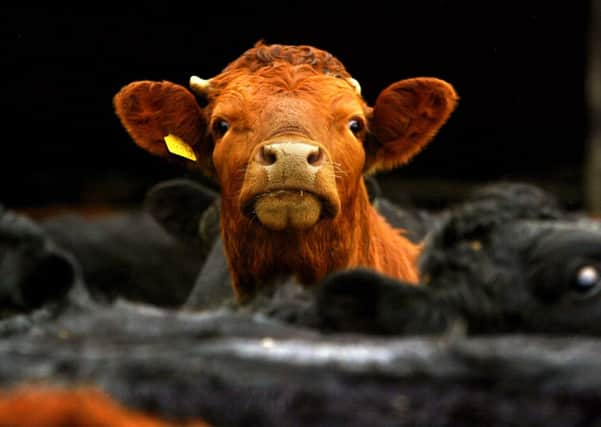Decline in bovine TB is ‘not good enough’ says NFU


THE SMALL decline in the number of new herds affected by bovine TB last year is “not good enough” and stronger controls must be implemented for the disease to be wiped out, the NFU has warned.
Figures released this week for the number of new herd incidents across Britain showed a fall of 4,808 in 2013 to 4,713 last year.
Advertisement
Hide AdAdvertisement
Hide AdIn the north region, which includes Yorkshire, the number of new herd incidents dropped from 918 in 2013 to 877 last year - however, the number of animals slaughtered as reactors or due to direct contacts increased by more than 750, from 6,432 in 2013 to 7.198 last year.
Across the country, the number slaughtered remained steady - 32,851 in 2014, compared to 32,612 during 2013.
NFU deputy president Minette Batters said the figures reinforced the need to implement the government’s 25-year TB eradication strategy for England, which was published last April, in full.
She said: “These figures are not good news for the thousands of farmers who are still dealing with the consequences of bTB on their farms every day. They are not good news for farmers in those parts of the country where bTB is still spreading. And they are certainly not good enough if we are serious in our aim to see bTB eradicated.”
Advertisement
Hide AdAdvertisement
Hide AdShe said introducing the eradication strategy in full, which includes tightening up cattle controls, developing cattle and badger vaccines, and culling where TB is rife, was vital “if we are going to stand a chance of winning the fight against this terrible disease.”
Ms Batters added: “There are many areas of England where bTB is rife and is having a massive impact on farming family businesses and where the roll out of badger culling would have beneficial effects. For the future health of the countryside we cannot afford to wait and we cannot allow bTB to be used for party political points scoring.
“We remain committed to the control and eradication of bovine TB using all available options - badger vaccination in the areas on the edge of disease spread to help stop the disease spreading further, the use of cattle vaccination when it’s available, and the use of appropriate cattle testing and movement controls that tackle disease while allowing farm businesses to continue to operate viably. But if we are ever going to control and eradicate bTB these options have to include controlling the disease in badgers in areas where it is rife. Only by doing this will we achieve what everyone wants – healthy badgers, healthy cattle and a TB free England.”
A Defra spokesperson said: “England has the highest incidence of TB in Europe, and over the last two decades the number of cattle slaughtered has increased ten-fold.
Advertisement
Hide AdAdvertisement
Hide Ad“That is why we are pursuing a comprehensive strategy to deal with the disease, which includes cattle movement controls, vaccinating badgers in the edge area and culling badgers where TB is rife.
“This approach of tackling the problem in both cattle and wildlife has worked overseas in Australia, Ireland and New Zealand.”
Last year, Michael Seals, chairman of the Animal Health and Welfare Board for England told The Yorkshire Post that bovine TB is “the greatest disease threat facing cattle in this country”.